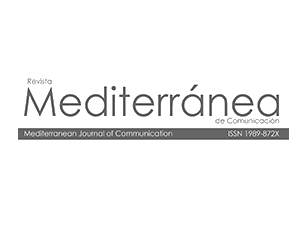Resumen
- Objetivo: Este anàlisis pretende determinar si existe relación entre los estereotipos sexistas exhibidos en la serie La que se avecina con los estereotipos que denunció la filósofa Simone de Beauvoir en su libro, El segundo sexo, marco mundial de referencia de los estudios feministas. Se ha querido establcer una relación entre estos parámetros para descubrir el grado de vigencia de los clichés denunciados por la filósofa francesa en 1949.
- Metodología: Para llevar a cabo este análisis, se ha examinado el capítulo quinto de la décima temporada. Titulado “Una novia virtual, una pretty chacha y un mamoneo confuso”, con este capítulo la cadena consiguió ser la más vista de toda la parrilla televisiva, con 840.000 espectadores, que supusieron un 20,5% de share. Se ha aplicado un método cualitativo de estudio basado en el análisis formal de las conversaciones, como parte del Estudio Crítico del discurso (Van Dijk, 1980, 1992).
- Resultados:
1.- Las características negativas con las que la sociedad de mitad del siglo XX caracterizaba a las mujeres, tal y como reflejó Simone de Beauvoir en su Libro El Segundo Sexo (1949), siguen actualmente presentes en la serie La que se avecina.
2.- De los ocho parámetros para definir a la mujer, la serie refuerza especialmente tres: “Incapacidad para bastarse a sí misma”. “Poca exigencia de sí misma”. “La trascendencia erótica consiste en habituarse a hacerse presa”.
3.- En función de los insultos que reciben los personajes, la mujer esta peor tratada que el hombre. Llama la atención la falta de reacción de la mujer que recibe el insulto, por ejemplo, puta o guerra frente al exceso de reacción de un hombre cuando escucha un insulto.
4.- La presencia continua de estas características son modelos negativos para la audiencia joven que sigue la serie ya que pueden legitimar esta supeditación al varón como modelos de comportamiento, por lo que sería interesante profundizar esta conexión, con diferentes sistemas cualitativos de investigación para determinar la influencia real en los modelos de comportamiento y de construcción de identidad.
4.- La comedia presenta, en general, una visión surrealista de las relaciones humana, aunque esté supeditada al ámbito de la ficción. No obstante, este trabajo pretende seguir el camino iniciado para determinar cuáles son los mecanismos de transmisión por los que estos modelos negativos siguen perviviendo hoy en día, fundamentalmente en la población adolescente.
- Conclusiones: Lo fundamental de este trabajo es la denuncia de la pervivencia en la serie de éxito La que se avecina de unos estereotipos sexistes que no solo denigran a las mujeres sino que contribuyen a la construcción del género femenino en clara desigualdad con el género masculino. Los estudios de percepción demuestran la influencia de los productos audiovisuales en la conformación social y personal, reforzada por la multitransmisión generada en las redes sociales. Urge terminar con los guiones en los que se siguen naturalizando el sometimiento de la mujer concebida como objeto, la base que sustenta todo tipo de violencia y desigualdad que siguen sufriendo las mujeres.
- Palabras clave: La que se avecina, redes sociales, estereotipos, sexistas, feminismo, Simone de Beauvoir
Palabras Clave /
Abstract
Objective: This analysis aims to determine whether there is a relationship between the sexist stereotypes exhibited in the series which is looming with the stereotypes denounced by the philosopher Simone de Beauvoir in his book, The Second Sex, global framework of reference of the Feminist studies.
Methodology: In order to carry out this analysis, the fifth chapter of the tenth season has been examined. Titled «A Virtual Girlfriend, a pretty maid and a confused Mamoneo», with this chapter the chain was the most view of the entire TV grid, with 2,840,000 spectators, which assumed a 20.5% share. A qualitative method of study based on the formal analysis of conversations has been applied as part of the Critical Discourse Study (Van Dijk, 1980, 1992).
Results:
1.- The negative characteristics with which the mid-twentieth century society characterized women, as reflected by Simone de Beauvoir in his book The Second Sex (1949), are still present in the series La que se avecina.
2.- Of the eight parameters to define the woman, the series reinforces especially three: «Incapacity to be self-sufficient». «Little demand of itself». «Erotic transcendence consists in getting used to becoming prey».
3.- Depending on the insults that the characters receive, the woman is worse treated than the man. Draws attention to the lack of reaction of the woman who receives the insult, for example, whore or war against the excess reaction of a man when he hears an insult.
4.- The continuous presence of these characteristics are negative models for the young audience that follows the series since they can legitimize this subordination to the male as behavioral models, so it would be interesting to deepen this connection, with different qualitative research systems to determine the real influence on behavior models and identity construction.
4.- The comedy presents, in general, a surrealist vision of human relations, although it is subject to the scope of fiction. However, this paper intends to follow the path started to determine which are the transmission mechanisms by which these negative models continue to survive today, mainly in the adolescent population.
- Conclusions: The main thing in this work is the denunciation of survival in the success series La looming of some sexist stereotypes that not only denigrate women but contribute to the construction of the feminine gender in clear inequality with the male gender. Perception studies show the influence of audiovisual products on social and personal confirmation, reinforced by the multi-transmission generated in social networks. It is urgent to finish with the scripts in which the submission of the woman conceived as an object continues to be naturalized, the basis that sustains all types of violence and inequality that women continue to suffer.
Keywords: “La que se avecina”, social networks, stereotypes, sexist, feminism
Keywords / feminism / LQSA / sexist / social networks / stereotypes
FIRMANTES
| Nombre | Adscripción | Procedencia |
|---|---|---|
| Elena Bandrés Goldáraz | Universidad de Zaragoza | Zaragoza, Spain |















